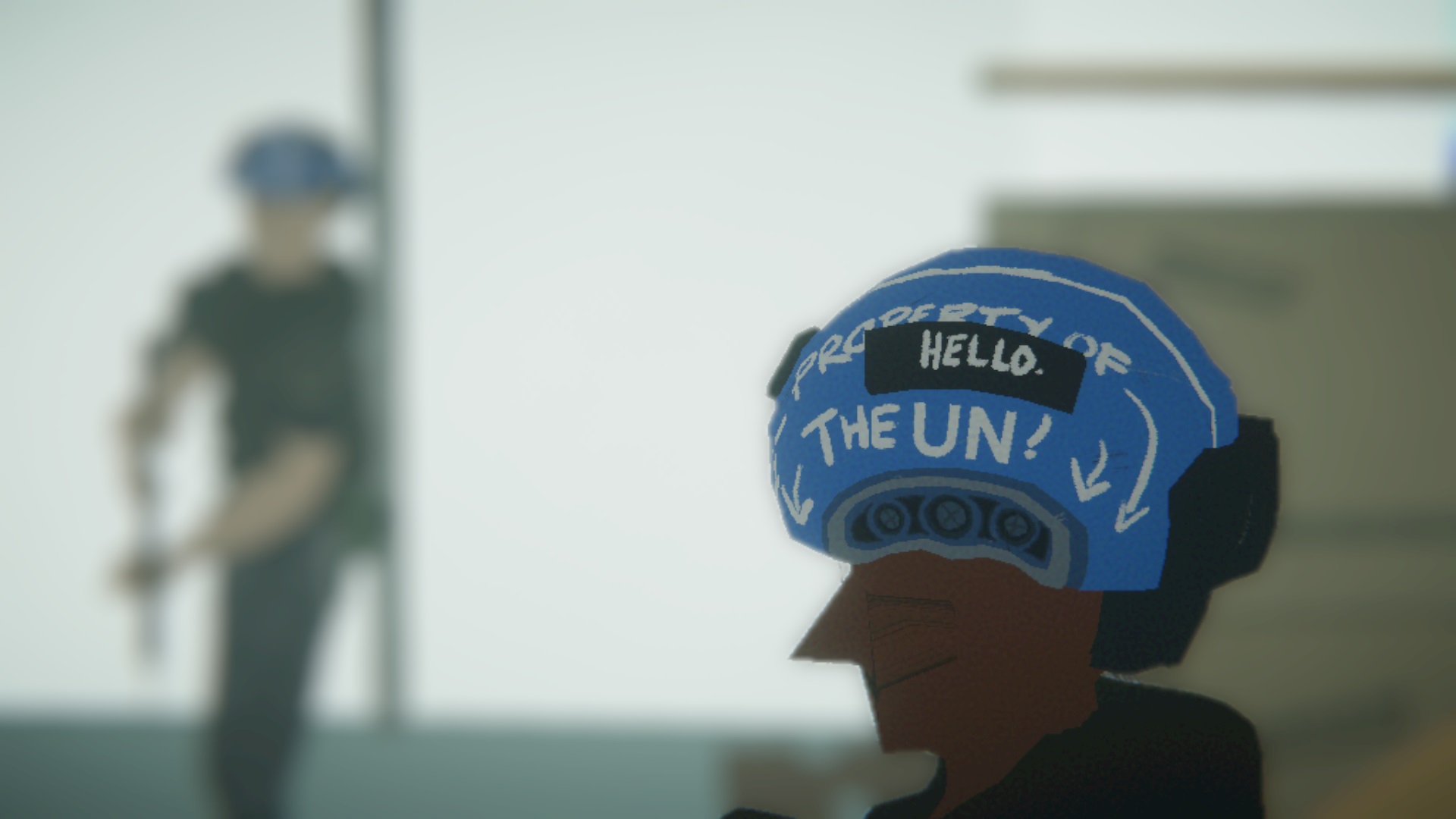Each location across the trash future cityscape of Tauranga Aotearoa - whether a vibrant rooftop hangout or winding urban labyrinth - tasks you with a list of shots to take before making a delivery and moving onto the next stage. Sometimes they’ll specify certain lenses or close-ups, but how you take these shots is largely up to you - with bonuses for filling your quota within a time limit, or simply for snapping a nice pic of your mates.
It’s crucial to note that at Umurangi never tries to judge your art. Instead, “bounties” act more as a guiding hand, nudging you towards objects and shot types that might make for a good snap. Even if you’ve never picked up a camera in your life, Urumangi’s tight, multi-layered stages are careful to direct you to the perfect composition. Is it a bit of a pixel-hunt at times? Oh, for sure. I absolutely spent upwards of 10 minutes scouring Otumoetai for a “Sarcastic” phrase only to find it printed on a lad’s hat. Did the resulting shot teach me something about portrait composition and focus? I reckon so, yeah.
With each new stage, you’ll unlock new camera kit to help spice up your photos. You might start your career snapping your mates with a single lens, but eventually, you’ll be bouncing from fish-eye shots of street parties to telephoto shots of the mother and child watching quietly from the kerb. By the end of the game, you’ll also have a full suite of photo editing tools, letting you muck around with contrast, saturation, chromatic aberration and the like. Revisiting those early stages with a complete photographic arsenal is an absolute treat.
I can’t stress enough how natural it feels to inhabit Umurangi’s vibrant lo-fi dystopia. It’s extremely Jet Set Radio - from the sketched 3D looks to composer ThorHighHeels’ musical backing - but it does Jet Set Radio right, deliberately grounding its fantastical elements firmly in real-world spaces. It’s a surprisingly vital detail. We’re almost two decades out from the last Jet Set, and games like Umurangi (and my current obsession, Splatoon) evoke that Tokyo-To vibe stronger than more deliberate successors like Hover or Neon Tail - works that feel too invested in being videogames to hit that believable groove.
Where Sega’s skate n’ sprays were steeped in Tokyo street culture, developer Veselekov’s Ngāi Te Rangi roots bleed through every inch of Tauranga Aotearoa’s graffiti-soaked walls. Regretfully, I don’t feel I have the cultural context to dig into those roots, but Umurangi feels defiant. A distinctly Maori story of community, colonialism, cyberpunk and (somehow) Neon Genesis Evangelion. Urumangi Generation is out now on Steam for £11.39/€12.49/$14.99. A bargain, considering how much a good camera’ll set you back these days.



